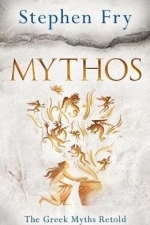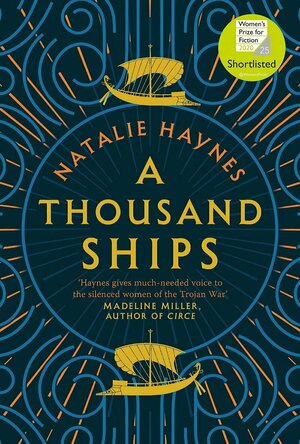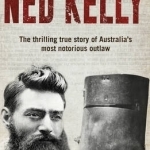
Ned Kelly
Book
Love him or loathe him, Ned Kelly has been at the heart of Australian culture and identity since he...
The book reads as a quasi-novel, from the birth of the universe to the third and fourth generations of immortals (this includes the creators, the titans, the gods, and mythical creatures/characters, spawns of titans and gods, gods and creatures, gods and men and all sorts.) and their adventures, each following on from the other.
I have always had an interest in the Greek myths and gods, and as I suggested above the really interesting part of these stories, beyond the very human nature of the immortals (jealousy, unreasonableness, duplicity, rage, deceit and pride) which makes for so much more of a believable creation theory, is the myriad ways they have influenced English language (any many others I'm sure). To give an example (I'm showing my own ignorance flagrantly here) a simple thing, the alphabet. It never occurred to me, in my own self centered existence, this simply come from the first and second letters of the Greek alphabet. Alpha and Beta. So simple, so obvious, yet I never made this connection.
The stories themselves are wonderful, and the best thing about them is they all tie in with a creation theory. Something, whatever it is, is learned, or created. Some paradigm is set, some moral conundrum is answered, or something in the world is explained by the end of every story told (the tides, the moon, wine, love, soul, war, sex, the seasons, humanity itself just to name a few). It's such an entertaining read, and I find myself telling anyone who will listen some of the revelations I find in this book page on page on page.
As an end note, don't be overwhelmed by the prospect of reading about these stories, this installment ONLY covers from creation, to the establishment of the twelve Greek gods, and their children. It stops before the even greater amount of legends stemming from human demigods (Hercules, Perseus etc) and these are picked up in Fry's most recent offering, Heroes (which I am yet to read).
If you have any interest in the Greek mythology, or etymology, or even history as a whole, this is absolutely one for you.
- Rob
ClareR (6067 KP) rated A Thousand Ships in Books
Sep 13, 2020
I’ve always loved reading Greek myths and legends, and I’m really enjoying the resurgence of these tales. Told with a modern eye, they can tell us something about ourselves today. We still experience war and loss (there has clearly been no learning experience over the time span between Troy and the modern era), and women are still the ones who shoulder the worst outcomes during and after a war.
It was fascinating to learn about these women, and I particularly liked Penelope’s letters to her husband Odysseus, relaying information about his unbelievable voyage and rather circuitous route home: all information gleaned from bards and their songs. A sensible person would want to know how the singer got the information to write the songs!
The Trojan women sections were really where the true heroes were. These were the women who had lived through a ten year siege, lost their husbands, brothers, sons and families, and were shared as slaves amongst the conquering Greeks. And that includes the poorest as well as the richest of women - Hecabe, Queen of Troy, amongst them.
This book was on the shortlist for the Women’s Prize 2020, and it deserved to be there. I loved reading this, and I now need to read the book written before this (The Children of Jocasta - it has sat patiently waiting on my bookshelf!) to get ready for Haynes’ book about Pandora and her jar!
Many thanks to NetGalley and the publisher for my copy of this book.
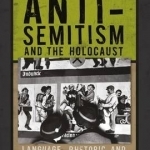
Anti-Semitism and the Holocaust: Language, Rhetoric and the Traditions of Hatred
Book
Anti-Semitism and the Holocaust surveys the history of the Holocaust whilst demonstrating the...
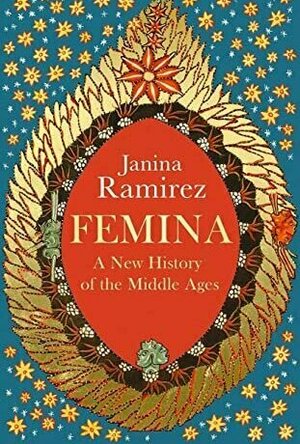
Femina: A New History of the Middle Ages
Book
Extraordinary women have held positions of power throughout history. But, aside from the select few,...
Non Fiction History Medieval
Narwhals: Arctic Whales in a Melting World
Book
Among all the large whales on Earth, the most unusual and least studied is the narwhal, the...
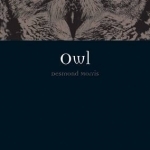
Owl
Book
The owls are not what they seem. From ancient Babylon to Edward Lear's The Owl and the Pussycat and...
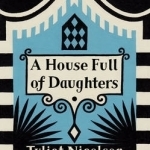
A House Full of Daughters: Seven Generations, One Family
Book
This is selected as a Book of the Year in the Telegraph & the Lady. As read on BBC Radio 4. All...
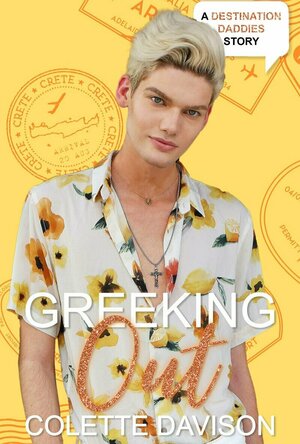
Greeking Out (Destination Daddies)
Book
Apollo A year of messaging on the Cuffd app has led me to understand one thing: Troy is the one...
Contemporary MM Romance Destination Daddies
Lyndsey Gollogly (2893 KP) rated King of Flames ( The Masks of Under 1) in Books
May 16, 2023
Kindle
King of Flames ( The Masks of Under 1)
By Kathryn Ann Kingsley
⭐️⭐️⭐️⭐️
Everything about my life has been pretty normal working as a forensic autopsy technician. Until the day I woke up with a mysterious symbol tattooed on my arm.
Suddenly normal no longer existed. The barrier between Earth and a world called Under, dissolved...
Now I’m trapped with dozens of other people. Held prisoner by the creators of myths and legends, where the realm is ruled by two masked kings who want to turn us into creatures like them.
But even though I didn’t choose to be here, this new world manages to pull me deeper, affecting me differently than other humans. Unfortunately King Edu, also known as the King of Flames, notices this and I’m now considered a threat.
If I want to survive King Edu and the dangers of Under, I need to escape. The only problem is, there’s another masked king who seems to have an interest in me. Aon, the King of Shadows, wants me here in this world, and he wants me alive.
I just need to figure out why.
This was just so different to anything I’ve read. It was a whole new world of dark and twisty! Really liked the characters and story. Can’t wait to see where it goes.
